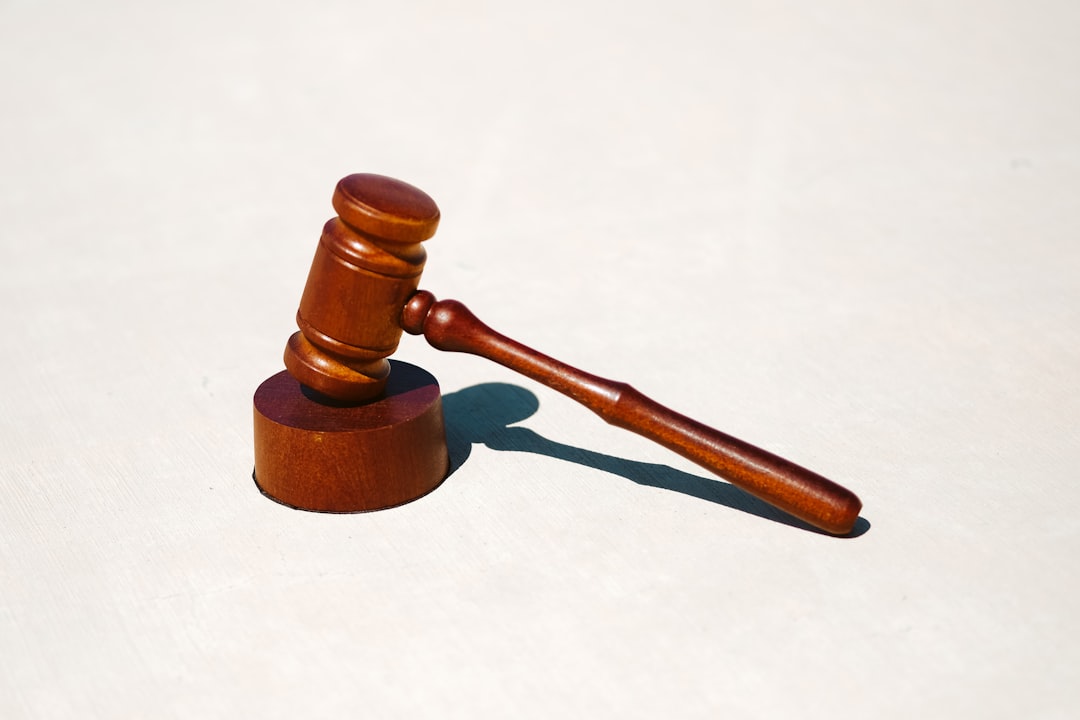In Utah, both state and federal laws protect consumers from unsolicited text messages (spam). The key tool is the Utah Department of Commerce's Do Not Call Registry. Businesses, especially law firms, must obtain explicit prior consent before sending spam texts to avoid fines. Attorneys play a vital role in guiding clients on navigating these regulations. Unsolicited legal service texts are illegal without consent; recipients should document and report them to the Utah Attorney General's Office. Violations can result in substantial fines and court-ordered injunctions. Prompt reporting ensures compliance with Utah's Do Not Call laws.
In Utah, managing spam text messages goes beyond mere annoyance; it involves adhering to strict legal frameworks designed to protect residents from unsolicited communications. This article delves into the intricacies of Utah’s Do Not Call Registry and corresponding spam text laws, highlighting the pivotal role that attorneys play in navigating these regulations. We’ll guide you through identifying and reporting unwanted texts, exploring legal consequences for violations, and offering strategic advice on protecting your rights if you’ve encountered illegal spam messages from Do Not Call law firms in Utah.
Understanding Utah's Do Not Call Registry and Spam Text Laws

In Utah, the fight against spam text messages is regulated by both state and federal laws, with a particular focus on protecting consumers from unsolicited texts. At the heart of this effort lies the Do Not Call Registry, a comprehensive database maintained by the Utah Department of Commerce. This registry allows residents to opt-out of receiving telemarketing or spam text messages, ensuring their peace of mind. For Do Not call law firms Utah, understanding and adhering to these regulations are non-negotiable. Violations can result in significant fines, underscoring the importance of implementing robust anti-spam measures.
Utah’s laws explicitly prohibit companies and individuals from sending spam texts without prior express consent. This means that any text messaging campaign must have explicit opt-in permission from recipients. Law firms operating in Utah, especially those engaging in marketing through text messages, should familiarize themselves with these rules to ensure compliance. Regular updates on the state’s Do Not call laws are crucial as regulatory changes can impact how businesses interact with their clients and potential customers via text.
The Role of Attorneys in Navigating Telemarketing Regulations

Attorneys play a pivotal role in navigating the complex landscape of telemarketing regulations, especially regarding spam text messages. With strict laws in place to protect consumers from unwanted communication, legal experts are essential for businesses and law firms alike. In Utah, where “Do Not Call” lists are enforced rigorously, attorneys ensure that marketing efforts comply with state and federal guidelines.
They help clients understand the Do Not Call Laws, which restrict unsolicited calls, including text messages, to individuals who have not given explicit consent. By employing these legal professionals, businesses can avoid costly fines and maintain a positive reputation. Attorneys provide guidance on crafting effective marketing strategies while adhering to the “Do Not Call” regulations, thereby fostering trust with consumers.
How to Identify and Report Unwanted Text Messages in Utah

In Utah, it’s illegal for businesses, including law firms, to send unsolicited text messages unless they have prior consent from the recipient. If you’re receiving spam text messages from a law firm or any other organization, identifying and reporting them is crucial to protect your rights. Start by examining the content of the message; if it promotes legal services and lacks an opt-out option or clear indication of consent, it’s likely unwanted.
Report these messages to both the sender and relevant authorities. Many mobile carriers have mechanisms for filtering spam texts, so inform your carrier about the issue. Additionally, Utah’s Attorney General’s office offers guidance on dealing with telemarketing and spam complaints, providing a reporting channel for such incidents. Remember, never engage or respond to such text messages; instead, focus on documenting the details, including timestamps and any identifying information, to assist in the complaint process.
Legal Consequences for Violations: Fines and Penalties

In Utah, violating anti-spam laws regarding text messaging, particularly unsolicited communications from law firms, can result in significant legal repercussions. Businesses and individuals found guilty of such violations may face substantial fines. The penalties often include monetary charges that can amount to thousands of dollars per incident, depending on the severity and nature of the breach. These fines are designed to deter companies from engaging in aggressive marketing tactics through text messages, ensuring compliance with Utah’s consumer protection regulations.
Beyond financial penalties, offenders may also be subject to court-ordered injunctions, requiring them to cease and desist any further unauthorized text messaging campaigns. Such legal actions can severely impact a company’s reputation, especially when coupled with potential customer lawsuits arising from these violations. Therefore, it’s imperative for law firms and businesses operating in Utah to understand and adhere to the state’s strict Do Not Call laws to avoid these severe consequences.
Protecting Your Rights: What to Do If You've Received Illegal Spam Texts

If you’ve found yourself on the receiving end of unsolicited and unwanted text messages, especially those promoting legal services, it’s crucial to know your rights under Utah’s anti-spam laws. The Do Not Call registry in Utah extends beyond phone calls, encompassing texts as well. If a law firm or any organization sends you spam texts, you have options.
First, document the messages by saving them and noting the sender’s details. Then, report these texts to the Utah Attorney General’s Office, which has mechanisms in place to address violations. You can also contact your local law enforcement agency for further assistance. Remember, taking action promptly is essential to protecting your rights and ensuring that such firms adhere to legal guidelines, especially when it comes to Do Not Call laws in Utah.






